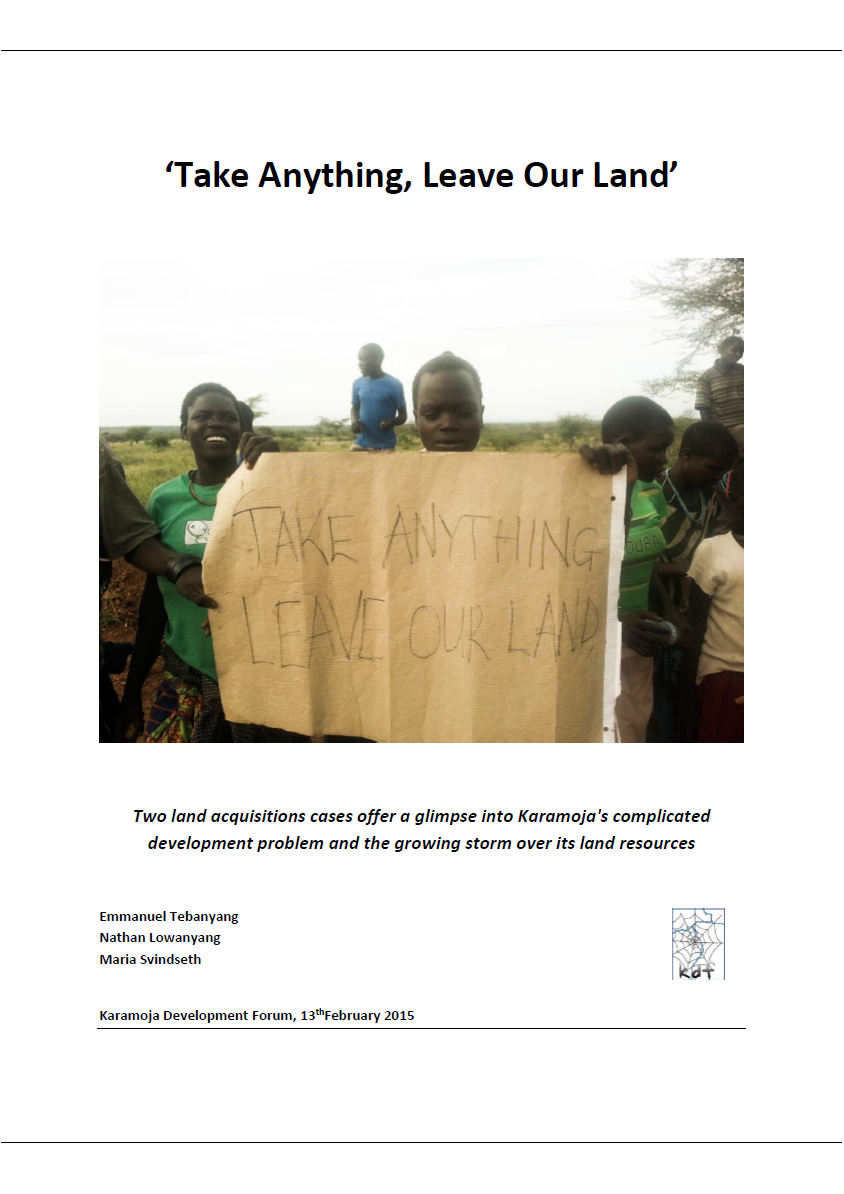Resource information
The Karamoja region in Northeastern Uganda, covering an area of 27,200 square kilometers, is inhabited by around 1.2 million people who live in seven districts; Moroto, Nakapiripirit, Napak, Amudat, Abim, Kotido and Kaabong. Its residents are mainly Ngakarimojong speaking peoples, but the area is also home to the Ethur, Labwor, Pokot, and indigenous minorities such as the Tepes and the Ik. Karamoja has been described as a 'development problem' because of its unique characteristics, with its people being mainly pastoralists and due to the recent history of cattle conflicts between the Karimojong ethnicities and its neighbors. Many Karimojong say they are left 'behind' in terms of socio-economic issues. To the rest of Uganda, Karamoja's recent history is a continuous source for justification. The government of Uganda with the support of Karimojong civil society and the Karimojong people embarked on a disarmament program in the early 2000s. The disarmament has been a success in the physical reduction of weapons, though it has been considered by many to have led to an economic crisis because of increased vulnerabilities. A number of people in Karamoja say the resulting ‘relative peace’ has opened up the region to an influx of economic interest in a short time and this has happened without the local communities being adequately prepared and informed of the changes they are now facing. The result has been a strain on traditional economic systems. The disarmament program reduced, if not minimized, the presence of guns in the Karamoja region and the following 'relative peace' has set the pace for increased development work. While many Karimojong are expecting the dividends of 'peace' to flow, new challenges have arisen, especially in the land and natural resources sector.



